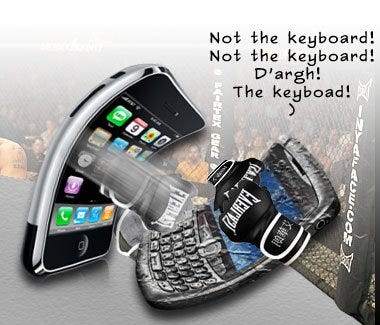Blackberry is dead along with Qwerty phones
Click to read the full story: Blackberry is dead along with Qwerty phones

A couple weeks ago, Blackberry confirmed that it will no longer be manufacturing its own phones after the lackluster reception of the Blackberry Priv. It looks like adopting the Android operating system for the Blackberry Priv came too late for the struggling phone manufacturer. The company’s old advantages of email and BBM eaten away by apps like Facebook Messenger, Telegram, Snapchat, Line and WeChat.
“The company plans to end all internal hardware development and will outsource that function to partners. This allows us to reduce capital requirements and enhance return on invested capital.”
— John Chen, CEO
The company says it will be outsourcing its hardware to partners and is currently working with partners on some Android devices like the DTEK60. Its predecessor, the DTEK50 was also an Android device that lacked a keyboard and was panned for average specs and redundant security features. Obviously, the DTEK60 will lack a physical keyboard which may be a norm for future Blackberry devices.
It will indeed be the end of an era of the physical keyboard as people seemed to have gotten the hand of using touchscreens. It’s unfortunate as physical keyboards are still the best way to quickly enter messages, notes and email.
Phones with physical keyboards were all the rage. It started with the Nokia Communicator 9000 which made it easy for executives to compose messages, email and even edit documents and spreadsheets on the phone. Every phone back then later had their own take on qwerty keyboards. The best among them were Blackberry and Palm while everyone else had touchscreens where they pecked on letters with a stylus. But then came the iPhone, a square slab without any keys but a single home button. The iPhone taught the world that virtual keyboards were possible because of the larger screen which shoved all those buttons off the phone. Android phones without keyboards soon followed, and the whole industry followed suit, except for Blackberry. The company still sees physical keyboards as an opportunity for growth.
It’s sad to see phones today looking like a bunch of uninspired black or white slabs mixed with different colors here and there. Everything looks the same except for the internals and operating system, unlike before when Nokia played psychedelic with its keypads for a while. Only three years ago, phones with keyboards that were not Blackberry were still on sale. But now, everything looks like uninspired slabs.

The problem with virtual keyboards is that it’s often tough to compose something if you don’t concentrate. You’ll always have to be sure your finger is on the right key, and depending on the keyboard, punctuations, numbers and symbols could be in various places. It’s flexible, sure and could cater to every individual, but it’s still tough to use depending on the phone. One advantage of virtual keyboards for manufacturers is the huge savings they get by removing physical controls. Physical keyboards represent a lot of elements, moving parts and points of failure while nowadays, manufacturers only have the touch screen to worry about.
Blackberry says that through its hardware partners, it will still churn out at least one keyboard phone per line to cater to the enterprise as well as Blackberry diehards that want their physical keys. IMHO, the physical keyboard is still great for text compositions. Many of us still want that tactile feel of actually pushing something, a feeling of control. Some touchscreens simulate it through haptic feedback. With physical keys, text entry is also faster and more accurate.
But later, if the money doesn’t come in, Blackberry might have to give up the physical keyboard altogether to save costs. As a writer, I keep a couple of keyboard phones handy such as my Blackberry Curve to write down my ideas as well as my trusty Palm Treo 680 as back-up. The Treo has sentimental value and it still works. Plus, I can play NES games on it with tactile controls. No current phone can do that now except maybe the old Sony Xperia Go.
But hopefully, Blackberry’s next offerings after the Priv codenamed mercury, argon and neon gain some traction. It would be a shame if the physical keyboard phone goes away. There’s always eBay.
The post Blackberry is dead along with Qwerty phones appeared first on Movie TV Tech Geeks News By: Marius Manuella
